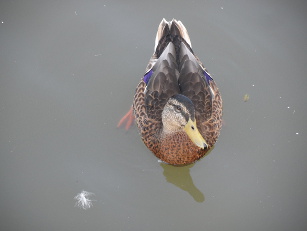Despite being illegal in 23 Member States (MSs) of the European Union, foie gras production by force-feeding is still practised in the remaining five (France, Hungary, Bulgaria, Spain and Belgium).
France holds the deplorable record of being both the main producing and consuming country.
Most of the other EU MSs have banned force-feeding either explicitly, through specific legislation, or implicitly, by enforcing the specific provisions of EU Directive 98/58/EC “concerning the protection of animals kept for farming purposes”, which states: “Animals must be fed a wholesome diet which is appropriate to their age and species and which is fed to them in sufficient quantity to maintain them in good health and satisfy their nutritional needs. No animal shall be provided with food or liquid in a manner, nor shall such food or liquid contain any substance, which may cause unnecessary suffering or injury.”
De facto, Directive 98/58 has made force-feeding illegal even in countries where no specific piece of legislation existed on foie gras production, such as Ireland, Latvia, the Netherlands and the UK, among others.
According to answers given by the European Commission to questions tabled by Members of the European Parliament (MEPs), force-feeding is still permitted on the basis of one line contained in the two Recommendations adopted by the Standing Committee of the European Convention for the Protection of Animals Kept for Farming Purposes of the Council of Europe in 1999: “Until new scientific evidence on alternative methods and their welfare aspects is available, the production of foie gras shall be carried out only where it is current practice and then only in accordance with standards laid down in domestic law.”
EU law on foie gras production is contradictory, because on the one hand the aforementioned Directive 98/58 makes clear that force-feeding should be illegal, while the EU Regulation on marketing standards for poultrymeat (Commission Regulation (EC) No 543/2008) establishes minimum weights for the livers of animals used in foie gras production (300g for ducks, 400g for geese), which can be obtained only through force-feeding, with rare exceptions for geese.
In an attempt to cast light on the present practices in foie gras production in Europe, and on the need for legislative action at the EU level, during this term of the European Parliament (2014-2019) over 20 MEPs from all political groups and various countries have tabled parliamentary questions to the Commission.
I was honoured to present an analysis of the European Commission’s answers to those questions, and to propose specific actions to improve the treatment of ducks and geese in Europe, in the meeting of the European Parliament’s Intergroup on the Welfare and Conservation of Animals, in Strasbourg on 12 May 2016, in my capacity as a consultant for GAIA.
At this meeting in the European Parliament, which was attended by MEPs, parliamentary assistants and other stakeholders, a presentation was also be given by Christophe Marie, Spokesman of the Fondation Brigitte Bardot, on the results of a survey recently conducted among consumers in France.
Most notably, world-renowned Professor Donald M. Broom (University of Cambridge) presented the “Scientific report on the welfare of ducks during foie gras production”, which he produced in 2015 together with Dr Irene Rochlitz.
The presentations were followed by a debate with the MEPs and, we hope, by further actions at the parliamentary level to help the ducks and geese that are still victims of force-feeding for foie gras production.
Free subscription to the AnimalWelfareAndTrade Newsletter: click here
Follow AnimalWelfareAndTrade on Twitter: click here
Follow AnimalWelfareAndTrade on Facebook: click here


